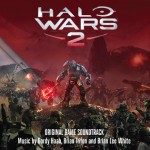David Cage’s follow-up to Quantic Dreams’ 2007 hit, Fahrenheit (or Indigo Prophecy in North America), was released just a couple of weeks ago and has already caused quite a stir. I’m speaking, of course, about Heavy Rain. Dubbed by its developer as an “interactive drama”, Heavy Rain provided one of the most cinematic and innovative experiences yet, and will undoubtedly be in the mix for GOTY.
“In an experience like Heavy Rain, I believe the music plays a very, very important role. We know that but we rediscover that in each game. Actually, we believe that music is probably about 50% – if not more – of the impact of the images,” says creator, David Cage.
So, what kind of impact does Normand Corbeil’s score have this time around? Click the jump for full review.
The game opens with the main protagonist (though you play four separate characters) waking up on the morning of his eldest son’s tenth birthday. It is here where we are first treated to the somber and plaintive main theme. In this incarnation of the theme, it is done with solo piano – an excellent choice. I wish I could tell you that I raised an eyebrow and did not instantly succumb to what David Jaffe might refer to as “the trappings of art”, but then I’d be quite the liar. I was, in fact, instantly scooped up by the theme (referred to as “Ethan Mars’ Theme”) and was ecstatic to find it reappear with variations (usually in orchestration and/or instrumentation) throughout the game. Although the official soundtrack’s version of the theme is orchestral, the piano reductions peppered in at key moments – in particular the introspective and familial moments – packed a vicious emotional punch and, to the dismay of my inner sap, was incredibly effective.
The next protagonist to whom we are introduced is the FBI agent, Norman Jayden, assigned to investigate the Origami murders. His theme consists largely of held chords on high and an ascending line in the middle voices. This theme feels and reads very similarly to Howard Shore’s The Silence of the Lambs score. Upon my first playthrough of the game, I found the similarities between the two soundtracks’ themes quite jarring, actually, though I don’t believe there was any conscious effort or intent on Mr. Corbeil’s part.
“Madison Paige’s Theme” is a mysterious blend of swelling strings ensconced in romanticism. This theme is eerie, beautiful, sexy, and scary all at once. Lastly, “Scott Shelby’s Theme” is a throwback to the saxophone-laced, private-eye themes of the old noir films. Largely atmospheric, this theme is the only theme that is trying to emulate something else but through the paradigm of the rest of the score. Essentially, it’s a very interesting way to evoke certain sensibilities while maintaining a faithfulness and congruity to the rest of the soundtrack.
Much like Fahrenheit, Heavy Rain provides the characters with their own action themes for when the drama on the screen explodes and puts the player in the middle of a chase, fight, etc. And, also like Fahrenheit, these action themes do not disappoint. “High Tension” and “The Chase” are the highlights of these tracks, although the other action themes are also quite exceptional giving the scenes an immensely thick layer of intensity. The use of this music coupled with the contexts for which it was intended give way to some real nerve-wracking moments where split-second timing can mean the difference.
Although the score of Fahrenheit is credited to Angelo Badalamenti in the game, Normand Corbeil had a significant role in its composition. This much is made even more obvious listening to Heavy Rain. Many of the general similarities include the heavy use of piano and/or piano doubling with other instruments all giving a very distinct and similar feel to the themes between the two games. With the exception of the main theme of Fahrenheit, I was able to tell rather quickly that these two scores (at least certain parts) were composed by the same man.
All in all, Heavy Rain delivers an incredibly competent soundtrack with a few memorable themes that are quite good. The solo piano music, in particular, delivers the goods exceptionally well. My only regret is that not more of these pieces were included on the official soundtrack release. Though all the themes can be found in one way or another, I think a full suite of all the piano themes would have gone a long way especially considering that the official soundtrack release clocks in at just over forty minutes. However, even this small blemish cannot tarnish an otherwise excellent score, soundtrack, and – thusly – experience. It is obvious that David Cage lives by his own words when it comes to game music as the action is simply soaked in the soundtrack making Heavy Rain one of the most musically memorable games to come around in quite some time.
Tags: Angelo Badalamenti, David Cage, Fahrenheit, Heavy Rain, Howard Shore, Indigo Prophecy, Music Reviews, Normand Corbeil, Quantic Dreams










































[…] Heavy Rain originalsoundversion.com […]